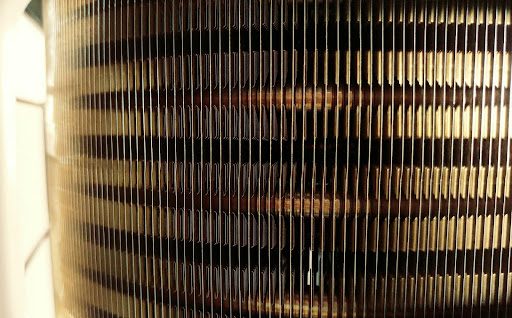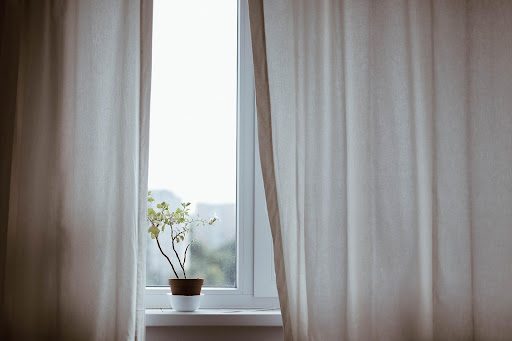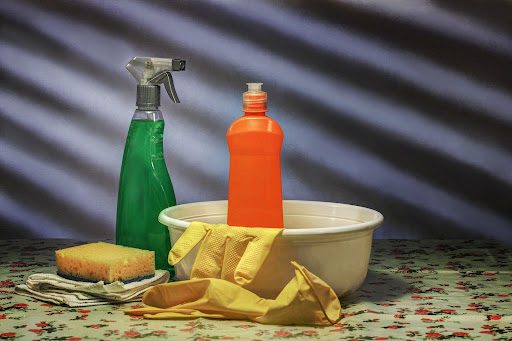Why Clean Air is So Important in Your Home
We all know breathing polluted air is bad for you – so how do you make sure your home has clean air? This informative guide will dive into the details of what makes clean indoor air so important and how to obtain it.
Every year, the world celebrates Clean Air Day to mark the significance of clean outdoor and indoor air to promote human health. While all forms of pollution are hazardous in nature, air pollution causes the greatest impact, accounting for thousands of mortality cases across the world.
Breathing contaminated air in your home can cause serious illnesses. In addition to this, low-quality air may affect plant and animal life. As a result, improving air quality in your home remains a crucial priority to lower rates of health concerns.

Health Issues Associated with Polluted Air in the Home
Common household air pollutants include particulates, household products such as pesticides and personal care products, lead from paints, asbestos from heating and cooling equipment, and formaldehyde used to preserve furniture, drapes, and carpets. These pollutants, together with smoking, lead to several health concerns, including:
Pneumonia
When exposed to air of poor quality, you are two times more likely to develop childhood pneumonia. Air pollution is associated with 45% of the pneumonia mortality cases experienced in children below the age of 5 years. Also, air pollution is linked to increased cases of lower respiratory infections among adults, contributing to 28% of the mortality rate.
Chronic Obstructive Pulmonary Disease
One of the major causes of death today is a chronic obstructive pulmonary disease (COPD). When exposed to high levels of indoor smoke, you are likely to experience COPD, a case that is very common among both men and women.
Lung Cancer
About 17% of lung cancer cases are attributed to exposure to air pollution, especially carcinogens caused by cooking using kerosene, charcoal, or coal.
Ischaemic Heart Disease
Indoor air pollution has also been linked to an ischaemic heart condition, which accounts for about 11% of deaths and over 1 million premature death cases.
Other Health Complications
Often, particulate matter from polluted indoor air affects the lungs, impairing the immune system and reducing the capacity of the blood to carry oxygen. There is also evidence that air pollution leads to laryngeal cancers, cataracts, and low birth weight.
Also, household air pollution is linked to heart diseases and stroke, and are affected by such factors as unhealthy diet, smoking, and high blood pressure.
Benefits of Having Clean Indoor Air
Having high-quality indoor air is important to maintaining good health. Some of the benefits associated with a clean-air home include the following.
1. Lower Risk of Heart Diseases
The heart is a delicate organ that can easily be compromised by airborne contaminants. There is a strong link between cardiovascular diseases and air pollution. Keeping your indoor air clean will limit the exposure to such pollutants thus reducing the risk of attracting heart-related diseases.
2. Better Home Workouts
If you are a fan of home workouts, having a high level of air quality is very crucial. It is well known that quality air promotes better athletic performance. People who bike or run using home exercise equipment need higher oxygen levels than ordinary in order to get the most out of their workout. Thus, having high air quality is a requirement for better workouts.
3. Clean Indoor Air Acts as an Anti-Aging Component
Today, natural methods of staying young have been rampant. Individuals are using such remedies to help them maintain a youthful look. When you get exposed to toxins, you are likely to age faster because of the resulting chemical reactions. However, with clean indoor air, your skin is likely to maintain its elastic nature thus preventing wrinkles. If residing in a dry climate area, consider using a humidifier to bring in purified air; important for raising the moisture content.
4. Improved Cognitive Health
The human brain heavily relies on oxygen just like any other part of the body. When you inhale polluted air that is full of contaminants, the brain is affected negatively. Long-term exposure to such particulate matter may lead to cognitive decline. Keeping your indoor air quality high, you will be able to prevent brain damage or any early decline of cognitive function.
5. Increased Happiness
Clean indoor air is associated with happiness. A study conducted in a Canadian cohort revealed that those who lived in air polluted areas have lower statistical levels of real happiness and satisfaction. Similarly, the study also revealed that happiness statistics were linked to air quality. Increased level of happiness leads to low stress while improving overall health.
How Can You Establish Clean Air in Your Home?
In order to create a clean indoor air environment at your home, here are the steps to consider:
Establishing a Regular Cleaning Routine
A cleaning routine is often a great place to start when you want to improve your indoor air quality. To achieve this, you need to first create a cleaning schedule, where you identify what needs to be done and how it is to be done. Take a moment and walk through the house to identify the cleaning tasks on the list.
Once you have a list of tasks, determine how often every task needs completion; whether it will be daily, weekly, or monthly. Be sure you review this schedule every month.
Keep Humidity Levels Below 50%
When in a wet climate region, you may need a dehumidifier
Higher humidity levels not only cause stuffy air but also increases mold growth and damage to wood furniture. To ensure that your indoor air maintains its quality, lower the level of moisture by improving the ventilation of your home. This could be done by opening windows so that the humid air can be replaced by the drier outdoor air.
Alternatively, you can use a furnace or a dehumidifier to remove some of the moisture.
Keep Windows Closed During Pollen Season
Pollen can blow inside and collect indoors, triggering allergy flare-ups.
To prevent the pollen from getting into the house, it is important that you close the windows and doors. You may also use air conditioning to control the pollens and dust mites.

Remove Bad Odors
While every family has its own habits when it comes to domestic hygiene and cleanliness, bad odors are a common occurrence. The odors may result from chemical compounds, which become easily sensible. The nasty smells not only cause discomfort but also cause health concerns.
To remove bad odor, it is important to circulate fresh indoor air. One of the ways to achieve this is by changing air filters regularly. If your air filter is clogged, then it won’t be able to capture pollutants and contaminants as expected thus making the home stink.
You may also steam clean surfaces like sofas, curtains, and drapes. These are areas that easily catch dust, but are often neglected during cleaning. Steam cleaning eliminates bad odors and dust that may pollute the indoor air.
Maintain and Change Carpet Regularly
Pollutants in carpets often affect indoor air quality. Common pollutants at home include dirt, dust, debris, pollen, fungi, dust mites, allergens, and pet dander. In order to maintain your carpet, use the right vacuum cleaner to remove any pollutants. Consider vacuums with the highest efficiency particulate air filters as they can remove up to 99.9% of any dust particles.
You may consider professional carpet cleaning every 4 to 6 months. This type of cleaning will remove any heavy stains or mold in the carpet while also sucking up all the debris hidden in the carpet.
If you have a pet, ensure that you clean the carpet thoroughly any time that the pet has an accident inside. Dried urine always contains a high amount of ammonia, which may lead to extreme odor or fumes. When these are inhaled, they can cause skin irritation, coughs, and eye irritation.
Most carpets last for about 8 years. As you approach this time frame, it is important that you replace the carpet.
How Different Parts Of The House Can Be Cleaned
Here are some of the ways to clean different parts of the house to improve air quality.
Bedroom
Allergic reactions often start in the bedroom where people spend up to a third of their time. Allergies at home can affect the quality of sleep and may cause eczema or asthma. To maintain the air quality in the bedroom, you need to do the following:
• Buy new pillows every new year.
For a healthy pillow or pillow cover, consider the following:
Made of fabric that blocks allergens like dust
Has breathable fabric to enhance comfort
Can be cleaned easily to remove allergens
Remains strong against regular wash
• Vacuum the box springs and mattress before they are covered. It is also necessary to cover the mattress every 10 years.
• Every week, you should wash your bedding using warm, soapy water. They should be dried at high temperatures
• Don’t let pets sleep on the bed because they will leave furs that increase allergic reaction
• When you wake up, leave the bed unmade for a while to let air to circulate
Bathroom
Since the bathroom is a humid space most of the time, it is likely to harbor mold. For high air quality, it is important to do the following
• Every day, run a fan for up to 20 minutes in the bathroom
• Fix any leaks within the washing area
• Allow washcloths and towels to dry after bathing
• Remove mold inside the bathroom cabinets and on the showers and sinks
• Wash curtains frequently to remove any mildew or mold
• Dust the exhaust fan covers
Kitchen
With the kitchen being a place for us to make our food every single day, it is likely to harbor allergens and pests, which affect the indoor air quality. To keep this area clean, the following is required:
• Remove mold on produce bins, refrigerator seals, cabinets, and trash cans
• Fix any leaks from the dishwasher or sink
• Use white vinegar or baking soda to clean the in-sink garbage disposal
• Refrain from leaving food or water sources out at night to avoid attracting cockroaches
• Store food in airtight containers
• Use trash can lids
• Clean any spills
• Use roach baits rather than pest sprays
• Wipe all cabinets using warm, soapy water
Living Room
The living room is similarly busy because of the series of activities at home. As such, the quality of indoor air is easily compromised. To clean it, you need to do the following:
• Declutter often
• Dust electronics and ceiling fans
• Remove unnecessary fabric from the living room to avoid allergens or dust mites

In summary, the numerous benefits of clean indoor air include:
• Improved skin appearance
• Cleaner and healthier lungs
• Reduced cases of asthma and allergies
• Better mood and sleep
• Reduced cases of lung and heart diseases
• Better digestion
We should be doing everything we can to improve the air quality in the places we live because it affects every aspect of our health and lives.
